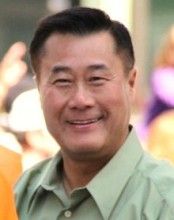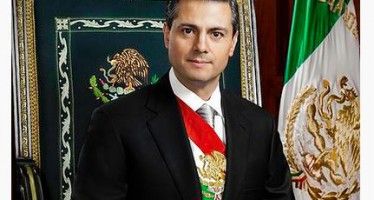Is San Francisco mayor now DA’s target?
 Former San Francisco state Sen. Leland Yee was recently sentenced to five years in federal prison for his role in a bizarre corruption scheme involving bribery, Chinese-American gangs, Filipino terror suspects and international gun-running. But related federal and local corruption probes of Bay Area governments continue and seem to hold the promise of claiming officeholders even more prominent than Yee and former San Francisco school board president Keith Jackson, who was also recently convicted of bribery and racketeering.
Former San Francisco state Sen. Leland Yee was recently sentenced to five years in federal prison for his role in a bizarre corruption scheme involving bribery, Chinese-American gangs, Filipino terror suspects and international gun-running. But related federal and local corruption probes of Bay Area governments continue and seem to hold the promise of claiming officeholders even more prominent than Yee and former San Francisco school board president Keith Jackson, who was also recently convicted of bribery and racketeering.
Yee was not the initial target of what has been described as a “massive sting operation” launched by the Justice Department centering on Bay Area politics. Instead, he was only ensnared in a bribery probe involving a fake, FBI-created software firm seeking government contracts, which led to the discovery of his other crimes.
Meanwhile, San Francisco District Attorney George Gascon is building off the FBI’s probe with his own prosecutions. In late January, he announced that two former employees with the city’s Human Rights Commission had been arrested for allegedly trying to sell access to Mayor Ed Lee. Nazly Mohajer, a former agency commissioner, and Zula Jones, a former staffer, allegedly took $20,000 from an undercover agent.
Although he met with the undercover agent, Mayor Lee has strenuously denied any role in the alleged bribery and money-laundering. But the fact that Mohajer and Jones were taped discussing how to break the money into smaller amounts to surreptitiously pay off Lee’s 2011 campaign debts has added to the loud whispering campaign that suggests the San Francisco mayor may be the FBI’s — and/or Gascon’s — ultimate target.
The FBI’s initial target was Raymond “Shrimp Boy” Chow, a leader of a San Francisco-based gang that had ties to Chinese business groups and politicians, including Lee. Chow was convicted in January on federal racketeering charges after his defense — claiming to be a reformed ex-criminal turned humanitarian and businessman — fell short.
It is not clear what sort of arrangement that the FBI and Gascon have — whether certain crimes will be prosecuted by the Justice Department and others by the San Francisco DA. But the most intense focus of the past month has been on Gascon’s attempts to keep a file of evidence related to the charges announced in January from being disclosed. He has so far persuaded a federal judge to keep it under wraps, arguing that its disclosure would reveal undercover agents and ruin promising corruption investigations.
“The evidence is a time bomb waiting to explode,” declared city Public Defender Jeff Adachi, who speculated that Lee or a member of San Francisco’s Board of Supervisors might be implicated.
Lee appears to think he’s the target, or a target, of the investigations. According to campaign records, he spent $19,000 of his political funds last year on criminal defense attorneys. This year, he’s used allies to depict Gascon as launching a politically motivated smear effort.
Democratic strategist Nathan Ballard described Gascon as a craven publicity hound in a recent interview with the Los Angeles Times.
“If the DA has the goods on Mayor Lee, he already would have come out with it. There has never been one credibly sourced allegation of pay-to-play being brought forward,” Ballard told the Times.
But Gascon is winning plaudits from San Francisco’s alternative media, which has long seen the city as a hotbed of corruption and phony progressives.
The SF Weekly recently praised the Cuban-American DA for blasting Police Chief Greg Suhr — and Mayor Lee — for allegedly blocking attempts to reduce misconduct within San Francisco police ranks. The department has drawn sharp criticism since the Dec. 2 shooting death of stabbing suspect Mario Woods.
Though police had credible reason to believe Woods was armed and dangerous, cellphone video of him being shot as he walked away from officers has generated raucous protests.
Chris Reed
Chris Reed is a regular contributor to Cal Watchdog. Reed is an editorial writer for U-T San Diego. Before joining the U-T in July 2005, he was the opinion-page columns editor and wrote the featured weekly Unspin column for The Orange County Register. Reed was on the national board of the Association of Opinion Page Editors from 2003-2005. From 2000 to 2005, Reed made more than 100 appearances as a featured news analyst on Los Angeles-area National Public Radio affiliate KPCC-FM. From 1990 to 1998, Reed was an editor, metro columnist and film critic at the Inland Valley Daily Bulletin in Ontario. Reed has a political science degree from the University of Hawaii (Hilo campus), where he edited the student newspaper, the Vulcan News, his senior year. He is on Twitter: @chrisreed99.
Related Articles
Tragedy could boost Newsom’s gun-control push
The slaughter of 14 people at a San Bernardino conference center Wednesday morning by two heavily armed Islamic extremists could
We Had Our Tea Party In 2003
Steven Greenhut: Here is my short op-ed piece from today’s New York Times Room for Debate regarding the role of
Mexico also having high-speed rail problems
California isn’t the only place having problems building high-speed rail. So is Mexico. The Times reported: Bowing to intense criticism,




